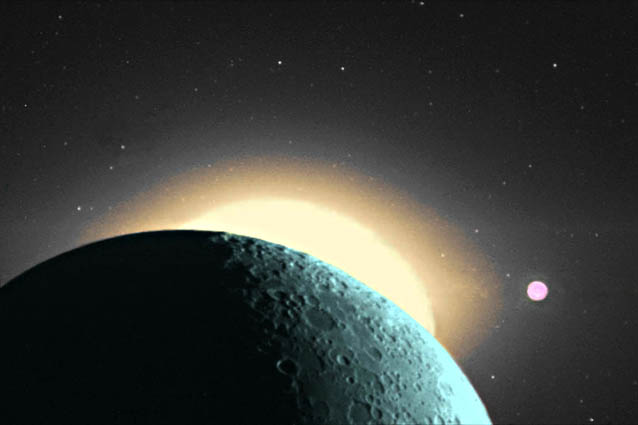July 24, 2015
Sun, Moon and Stars
Originally published July 23, 2004
Image Credit: Naval Research Lab Clementine Site |
|
Sun, Moon and Stars How often can you see an image of the Moon, Sun, Venus (pink dot) and stars all in one frame? This dramatic view from a decade ago was taken by the Clementine lunar orbiter's Startracker camera. The false color enhanced version shows a green Moon - perhaps it is green cheese - with brilliant bits of the solar corona (and maybe the sun itself) sticking out from beyond. Do you recognize the part of the Moon that is visible? The terminator is near 90 degrees east - with the Earthward hemisphere illuminated. But actually, it is the Earthshine terminator! You are looking at the portion of the Moon illuminated by sun light, bounced from the Earth to the Moon. The flat patches of mare that fills craters and spaces between them is Mare Australe, and the largest crater is Lyot. Compare with an Apollo 15 view, but notice that the orientations are different - the green version has south up. Thanks to Arthur Smith for recommending this dramatic image! Technical Details: Related Links: Yesterday's LPOD: Huge Fractures Tomorrow's LPOD: An Excess of Craters |
Author & Editor: |
COMMENTS?
Register, Log in, and join in the comments.




